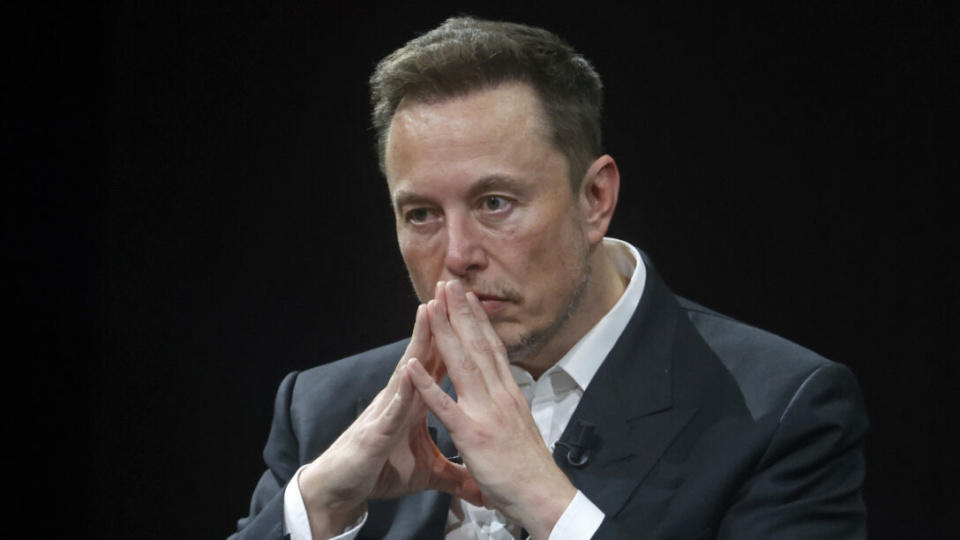
Recently, Tesla (TSLA.O) has once again been caught in the vortex of market doubts. Its expected June quarter deliveries may decline for the second consecutive quarter. This news not only worries investors, but also triggers extensive discussions in the industry about the future development of this top electric vehicle manufacturer. According to reports from multiple foreign media and online news, Tesla is facing unprecedented challenges. Its fierce competition in the Chinese market, the lack of affordable new models, and the change in consumer preferences together constitute the main reasons for the decline in deliveries.
The decline in Tesla's deliveries is not sudden, but the result of multiple factors. As one of Tesla's important markets, the Chinese market has an increasingly severe competitive situation. Chinese local new energy vehicle manufacturers such as BYD have rapidly risen and occupied a large market share with their price advantages and technological innovations. According to data, BYD's passenger car sales in June 2024 reached 340,211 units, a year-on-year increase of 35.2%, of which EV sales reached 145,179 units, showing strong market competitiveness. In contrast, Tesla's sales in the Chinese market declined year-on-year, especially in June, when sales plummeted by 24% year-on-year. This comparison undoubtedly makes Tesla's market position look precarious.
Tesla also faces challenges in product strategy. Tesla has long attracted a large number of consumers with its high-end brand image and unique technology, but as market competition intensifies, consumers are increasingly demanding affordable new models. However, Tesla is relatively slow in launching new models, and its price positioning is high, making it difficult to meet the needs of a wider range of consumers. In addition, Tesla CEO Elon Musk shifted the company's focus to the self-driving taxi project and shelved plans to build new and cheaper electric vehicles, a decision that also raised market concerns about its future product line.
Faced with the dilemma of continuous decline in delivery volume, Tesla's response strategy has been questioned. On the one hand, Tesla tried to stimulate sales through price cuts and incentives, but whether this short-term measure can be effective in the long run remains to be seen. On the other hand, Tesla also faces challenges in cost control and supply chain management. In order to cut costs, Tesla has taken large-scale layoffs, even affecting the team responsible for the supercharging project, which will undoubtedly have a negative impact on the company's long-term development.
In addition, Tesla's investment in autonomous driving technology has also caused widespread controversy in the market. Although Elon Musk is confident in autonomous driving technology, it is still in its early stages of development and there are many uncertainties and risks. Investors and the market are concerned that Tesla is investing too many resources in autonomous driving projects, believing that this may distract the company from its main business of electric vehicles.
The rise of China's new energy companies: comparison and enlightenment
In sharp contrast to Tesla's predicament, China's new energy companies are rising rapidly and showing strong competitiveness. BYD, SAIC Group, Geely Automobile and other companies have achieved remarkable results in the field of new energy vehicles, not only occupying a leading position in the domestic market, but also actively expanding overseas markets. These companies have successfully attracted a large number of consumers and promoted the rapid development of the new energy vehicle market by virtue of technological innovation, product diversification and market strategy adjustments.
The rise of China's new energy companies provides valuable inspiration for Tesla. Tesla needs to face the reality of market competition and accelerate the pace of product innovation and iteration to meet the needs of a wider range of consumers. At the same time, Tesla should also strengthen its supply chain management and cost control capabilities to ensure stable output of production capacity and maximize profits. In addition, Tesla should also pay attention to changes in market dynamics and consumer demand, and flexibly adjust market strategies and product positioning to meet market challenges.
The news that Tesla's delivery volume has fallen for the second consecutive quarter has undoubtedly brought huge shocks and doubts to the market. Faced with fierce market competition and changes in consumer preferences, Tesla needs to take more effective measures to cope with challenges and restore market confidence. At the same time, the rise of Chinese new energy companies has also injected new vitality and opportunities into the global new energy vehicle market. In the future, competition in the new energy vehicle market will be more intense and complex. Whether Tesla can stand out in this competition remains to be seen.

報告顯示,中國電力投資加速增長,預計2024年電網基建投資將超過5300億元。
近日,市場迎來了一則引人注目的消息:工業巨頭3M公司(MMM.N)在本周五公布了其季度業績報告,隨後股價飆升至近兩年來的
最近,外媒給OpenAI算了筆賬,今年可能要血虧50億美元。
近日,巴黎奧運會和世界鐵人三項協會聯合發布了一項重大決定,宣布因塞納河水質污染問題,原定於近期進行的奧運會鐵人三項首次下
當地時間7月18日,法國巴黎發生了一起令人震驚的持刀襲警事件。
近期,一則重大消息在國際舞臺上引起軒然大波,馬來西亞宣布加入金磚國家。
調查發現,互聯網和智能手機的使用幹擾了韓國近五分之一學生的生活。